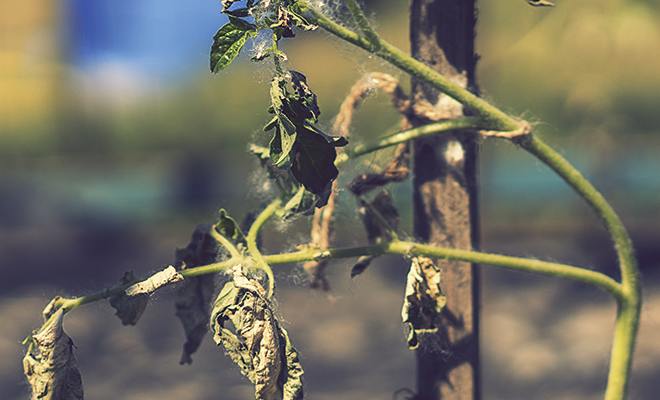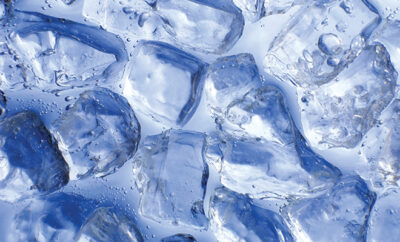
It’s Personal: Climate Change Affects Our Health
Whether or not you realize it, climate change affects us all. When paired with natural and people-produced health stressors, climate change can weigh heavy on our physical and mental wellbeing.
As some existing threats intensify, others are just evolving. While not everyone is equally at risk, sooner or later we are all affected by our environment. Here are seven ways climate change impacts our personal well-being.
Air Pollution
Most of us have seen or experienced air pollution, and some people live within it every day. We may imagine a brown haze looming over a busy city, but air pollution comes in many forms, including manufacturing pollution, vehicle emissions, wildfires and more. What does this mean for our health? It’s considered a major trigger for issues such as decreased lung function, increased hospital admissions, emergency room visits for asthma and a rise in premature deaths. Nationwide, it is estimated that health-related costs of air pollution exceed $6.5 billion yearly.
Allergies
As temperatures rise, so does the pollen count. New research shows that pollen season will only get worse with climate change. A recent study published in the Proceedings of the National Academy of Sciences shows the U.S. will see a 200 percent increase in total pollen this century if the world continues producing carbon dioxide emissions at high rates. If so, the spring pollen season will start earlier and last longer, impacting the economy through rising health care costs, missed work days and physical and mental strain.
Disasters, Storms, Wildfires
As the surface of the earth gets hotter, the chances of drought increase and the intensity of storms rises. As extra water vapor evaporates into the atmosphere, it becomes fuel for powerful storms. Additional heat in the atmosphere and warmer surface ocean temperatures can lead to bigger wind speeds in tropical storms. Rising sea levels expose locations not usually affected by the power of the ocean to the erosive forces of waves and currents.
Droughts and heat waves are increasing around the world, nearly doubling the total area where dry land may go ablaze. As a result, wildfires are increasing in frequency, size and intensity around the world, while smoke seasons are getting longer. What does this mean for us? Smoke from wildfires is responsible for tens to hundreds of thousands of premature deaths around the world each year, especially for those who are most vulnerable.
Disease
Often, the emergence of diseases is linked to climate change. Weather extremes can provide the ideal conditions for infectious diseases to spread. As temperatures increase worldwide, sicknesses that once thrived in warmer regions are expanding to other climates.
Weather Extremes
Weather extremes disrupt our day-to-day health with excessively high temperatures, flooding and storms. Warmer average temperatures can mean shorter winters, hotter summers and more frequent flooding. These weather conditions tend to be more hospitable to mosquitoes and other vectors that can carry diseases. Neighborhoods with the fewest resources are most susceptible to extreme weather.
Food and Water Issues
In some parts of the world, we are already noticing the effects of climate change on the food and water systems. Higher temperatures can make crops even more vulnerable during dry periods. Certain species of insects and weeds benefit from hot weather and elevated CO2, increasing their ability to damage crops. This means smaller crops for farmers, less food available and an increase in pricing for consumers.
Mental Health
Aside from its effects on physical health, climate change can adversely affect mental health. Extreme weather events such as floods, droughts and fires can lead to psychological distress due to trauma, illness, loss of loved ones and property damage. A changing global climate can foster the mental health issues of stress, increased alcohol use, depression, anxiety and post-traumatic stress.
Prevention Offers Protection
Climate change is generating major environmental, physical and mental concerns, but experts say there is hope. Addressing the imminent food and water crises can be accomplished, but a great deal of work is needed. This would include a major re-evaluation of land use and agriculture worldwide. Preventive actions such as developing extreme weather early warning systems and improving water infrastructure can help reduce the severity of harmful climate impacts. But this can take us only so far.
Our behavior as consumers also needs to adjust, even if it seems small. Experts say increasing land productivity, wasting less food and encouraging more people to eat less meat can help. Buying local, carpooling and educating ourselves on our climate impact are also important. There are many actions that are available to us now that can help us cope with looming climate change issues. They just require immediate attention and the will to change.
Sources: cdc.gov, globalchange.gov, who.int, nature.com and betterhealth.vic.gov.au.







